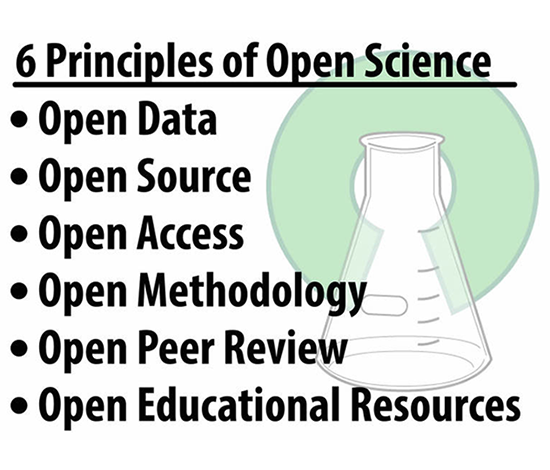PSYCHOLOGY TODAY
8.2
Psychology in Crisis
We review two crises in psychology as a way to learn about old tensions and new practices within the discipline.
Psychology as a Science or a Profession?
As you learned earlier in the course (see Step 3), the American Psychological Association (APA) was founded in 1892. It now represents the largest professional organization of psychologists in the world, with over 120,000 members.
The history of the American Psychological Association reveals something quite interesting about the discipline. The American Psychological Association grew impressively throughout the 20th century through a combination of mergers with other smaller professional organizations and the creation of several divisions (currently 54), forming an ever-growing heterogenous group of scientists, practitioners, and students.
One reading of this growth is that it represents a success story by which a new discipline conquered a place in science and society. However, the story of the APA is not only one of growth and increasing diversity but also of strife and secession. One relatively recent secession within the APA took place with the formation of the Association for Psychological Science in 1988 (named American Psychological Society until 2006). The APS was founded by a group of psychologists that felt the APA was not adequately supporting scientific research and it had “become a guild”, focusing too much on practitioners’ needs and interests; in particular, the clinical areas of psychology (Cautin, 2009a, 2009b).
Crucially, this was not the first time such an event occurred. A similar secession had occurred years earlier with the founding of the Psychonomic Society in 1959. At the time, experimental psychologists already had the feeling that “the APA was moving too strongly in the direction of professional (i.e., practice-related) psychology at the expense of experimental work” (Dewsbury & Bolles, 1995).
These two breakaways from the APA can be seen as momentary crises in the professional organization underlying psychology, but also as more general symptoms of the “scientist-practitioner gap” that reflects long-standing tensions between views of psychology as a science vs. an applied profession.
The Replication Crisis and the Search for Systematic Programs of Research
Reproducibility is a defining feature of science because only by systematically being able to reproduce scientific results can scientists and other consumers of science - such as lay people, journalists, or policy-makers - be assured that scientific conclusions are substantiated by evidence. Naturally, the discipline has been deeply shaken by the finding that many of its research findings do not replicate. One prominent publication by the Open Science Collaboration (2015) estimated that only about 1/3 of scientific results in psychology could be replicated:
“We conducted replications of 100 experimental and correlational studies published in three psychology journals using high-powered designs and original materials when available. Replication effects were half the magnitude of original effects, representing a substantial decline. Ninety-seven percent of original studies had statistically significant results. Thirty-six percent of replications had statistically significant results.”
There are likely multiple reasons for this state of affairs which may have roots in the cultural emphasis put on experimentation in the discipline as well as long-standing incentive structures for researchers in the field. Importantly, the current situation seems to demand more systematic programs of research that do not focus on single experimental findings but larger sets of theoretical stances that can be tested and studied using several approaches and methodologies (Diener & Biswas-Diener, 2020). Crucially, and particularly interesting from an historical perspective, is that the assessment of the state of psychology and the need for more systematic approaches is not new. For example, Paul Meehl, a leading methodologist and clinical psychologist, had already made a similar assessment of the field in 1967 and identified “unhealthy tendencies prevalent among psychologists such as a premium placed on experimental “cuteness” and a free reliance upon ad hoc explanations to avoid refutation” (Meehl, 1967).
Questions on the texts
Read more about the replication crisis in psychology and the proposed solutions here (core reading) to answer the following questions:
- Why is replication an important aspect of the scientific enterprise?
- What are potential reasons for the replication crisis in psychology? And to what extent are these modern or old problems in the discipline?
- What are major steps that could be taken to deal with the replication crisis?

The current rise of open science practices in psychology are one very visible consequence of the replication crisis.
(CC BY 3.0; 6 Principles of Open Science - adapted from openscienceASAP. Underlying Image: CC by-SA 3.0; Greg Emmerich)
References
Cautin, R. L. (2009a). The founding of the Association for Psychological Science: Part 1. Dialectical tensions within organized psychology. Perspectives on Psychological Science, 4(3), 211–223. http://doi.org/10.1111/j.1745-6924.2009.01120.x
Cautin, R. L. (2009b). The founding of the Association for Psychological Science: Part 2. The tipping point and early years. Perspectives on Psychological Science, 4(3), 224–235. http://doi.org/10.1111/j.1745-6924.2009.01121.x
Dewsbury, D. A., & Bolles, R. C. (1995). The founding of the Psychonomic Society. Psychonomic Bulletin & Review, 2(2), 216–233. http://doi.org/10.3758/BF03210961
https://cdn.ymaws.com/www.psychonomic.org/resource/resmgr/docs/1._The_founding_of_the_Psych.pdf
Diener, E. & Biswas-Diener, R. (2020). The replication crisis in psychology. In R. Biswas-Diener & E. Diener (Eds.), Noba textbook series: Psychology. DEF. Retrieved from http://noba.to/q4cvydeh
Meehl, P. E. (1967). Theory-testing in psychology and physics: A methodological paradox. Philosophy of Science, 34(2), 103–115. https://doi.org/10.1086/288135
Open Science Collaboration (2015). Psychology. Estimating the reproducibility of psychological science. Science, 349(6251), aac4716. http://doi.org/10.1126/science.aac4716
Please note that certain links to journal articles are only available within the eduroam network if they concern publications for which the university has a campus license. If you are a member of the University of Basel and want to access university resources from home, you will need to install a VPN client.
Lizenz
University of Basel
